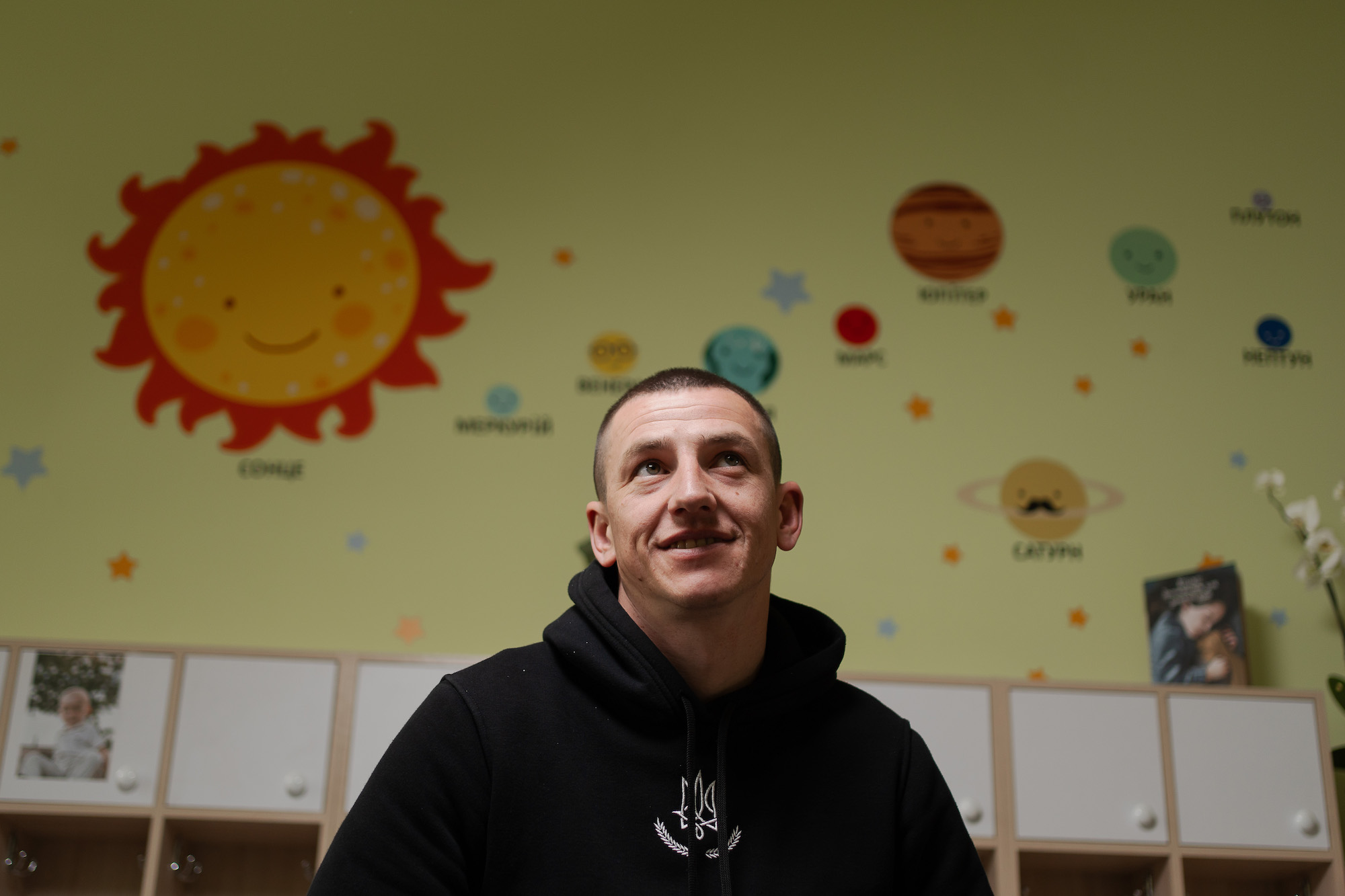
The Waltz of Salvation
A short young man in a black shirt is accompanied by a woman in an elegant, fitted beige and black dress. With a tender smile on her face, the woman doesn’t look much older than her dance partner. Together, they step on the stage and start their slow waltz to the sounds of “Hold me tight” by Khrystyna Solovii.
All eyes are on the man and his bionic prosthetic right arm that firmly holds and leads his partner. The waltz is slow but not monotonous, with dancers stepping back and forward—no one would guess that those backward steps were quite hard for the young man just a while ago.
The man and the woman are Heorhii Raskaliey, 22, and his mother, Maryna. With their slow dance, they open a national adaptive sports competition, “Invictus Games,” for veterans and military servicemen. Here, Heorhii feels at home. He joined the army at the age of 19, before the full-scale war unfolded, putting off his education and dream to become a masseur. A year ago, he lost his arm in the battles in the east. He almost lost his life. His breath stopped, and his heart stopped beating before he was pulled out of the darkness. Three strokes followed. The doctors told him he would not be able to walk and might also lose his sight. He had to throw away all the thoughts about dancing, too, of course.
But Heorhii is dancing.
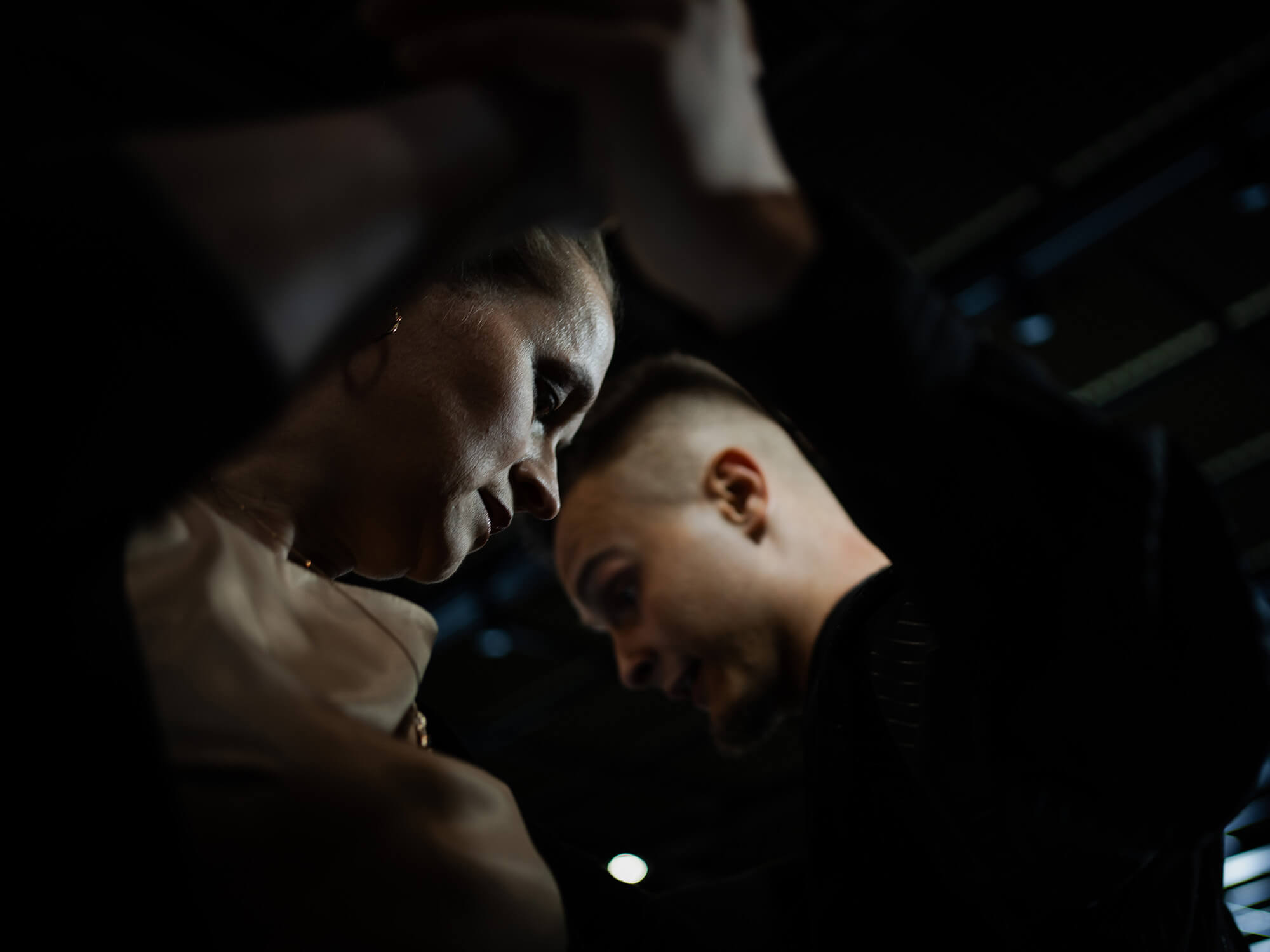
To learn everything
The only book Heorhii could not finish during his life is a collection of CPSU congresses. He found it among his grandpa’s books and managed to read only a couple of pages. The boy was such an avid reader that he devoured everything he could find. Since his childhood, he enjoyed horse riding, rowing, and swimming. His mother tried to teach her children everything—her older son Heorhii had enough energy to take on all the hobbies and try all the classes.
At sixteen, he walked from Korosten to his native Irpin. His trip did not have any aim; it was just on a whim. First, Heorhii went to Korosten by train and then walked back. He is still proud of his sixteen-year-old self. Along the way, he got caught in a rainstorm and considered ending his adventure by taking a bus home, but then he realized he had no money in his pockets, so he just kept walking.
“It was fun,” he says. “And it was even more fun to get scolded by mum at home.” However, his mother always had a very subtle understanding of when a good scold is needed and when it was better to let it go. She is his friend, always inspiring and motivating him to reach for new heights; she has been at his side throughout the hardest times.
Heorhii grew up with ballroom dancing and calls waltzes his great love. It was Maryna who brought her then seven-year-old son to the dance school in the basement of the tax academy in Irpin.
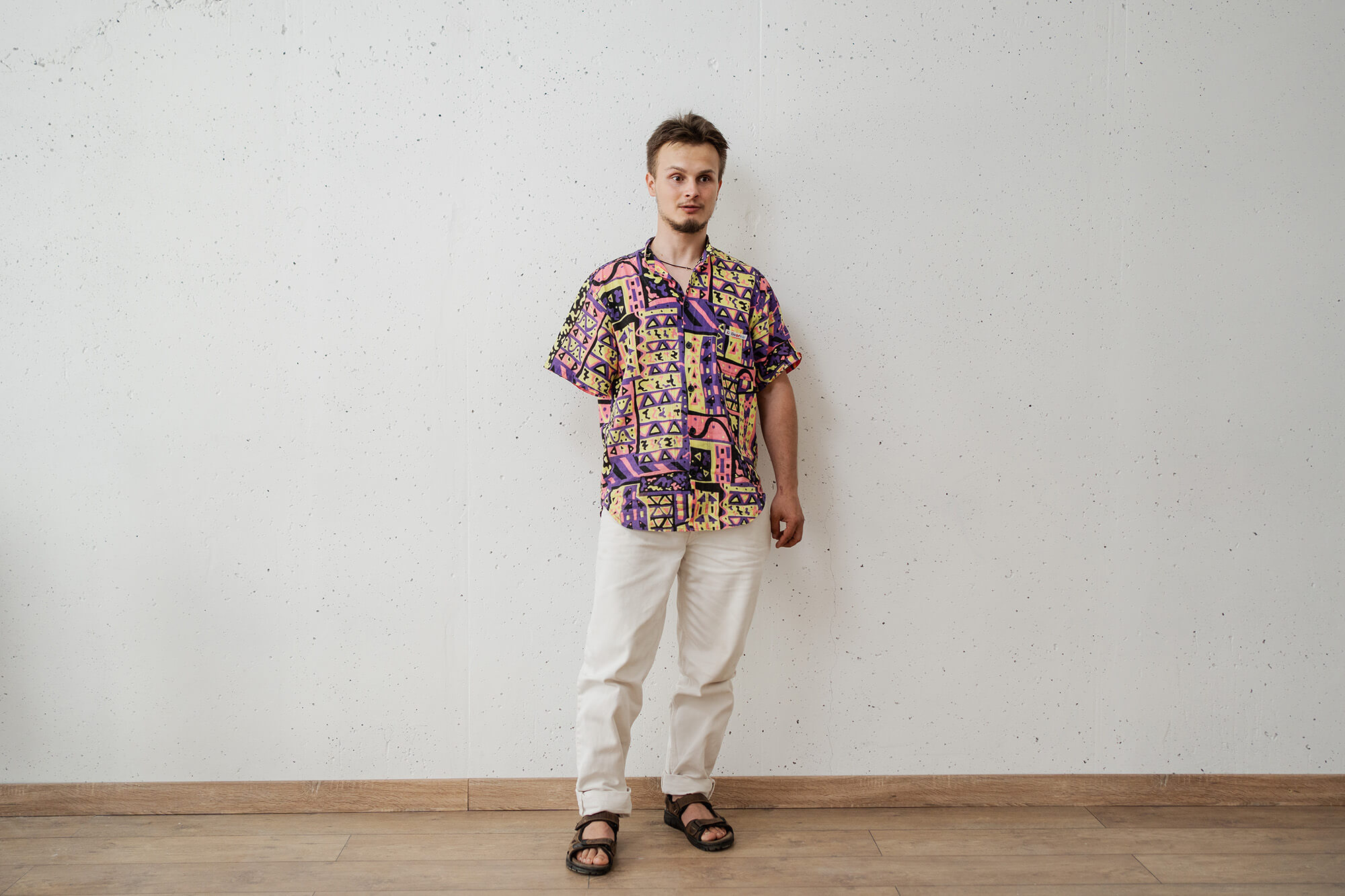
Dancing was Maryna’s hobby and she shared it with her son, making him fall in love with waltzes. Heorhii finds it hard to explain why exactly he loves slow waltzes the most, even though he is a very active and energetic person.
Dancing has played different roles in his life. Sometimes he hardly practiced and sometimes he stopped dancing all together. At that time, little did he know there would be a war, and dances would become something bigger than just a hobby for him.
As an adult, Heorhii decided on his profession and chose to become a masseur. Not only did he like it, but he was good at it, too. However, it took him only an hour to make up his mind to join the army. The COVID-19 pandemic was raging, everybody was locked up at home, and Heorhii reminded himself he had once longed to serve, so why not now? He was a student at Polissia National University in Zhytomyr, so he got on a bus, went home, and arrived at the military enlistment office to get a letter of reference. It was done. Now he was a gunner of the Grad missile system in the 95th separate airborne assault brigade of the Armed Forces of Ukraine.
Mom heard it all
In February 2022, he was already counting the days until his rotation. He imagined how he would travel from the Donetsk Oblast to Zhytomyr, and then to Irpin, home, to his family.
On the night of February 24, Heorhii was on duty, guarding a warehouse with ammunition. Suddenly, a fellow soldier came running: “In 15 minutes, we’re going on a combat mission! Don’t you know anything? Sure, you don’t, you are on duty. The offensive has begun, the Russians are moving in and shelling the whole country!”
Heorhii could not believe it. It seemed the soldier was hallucinating: How was the war possible when his rotation was so close? The rotation to Zhytomyr, to Irpin, to his family. And what about Irpin?
Only after three weeks did he find out about what was going on in his home city. Finally, he could call his mom and speak with her for a whole minute. Both of his parents, along with his two younger brothers and sister, stayed in their home city, where the fighting continued throughout March.
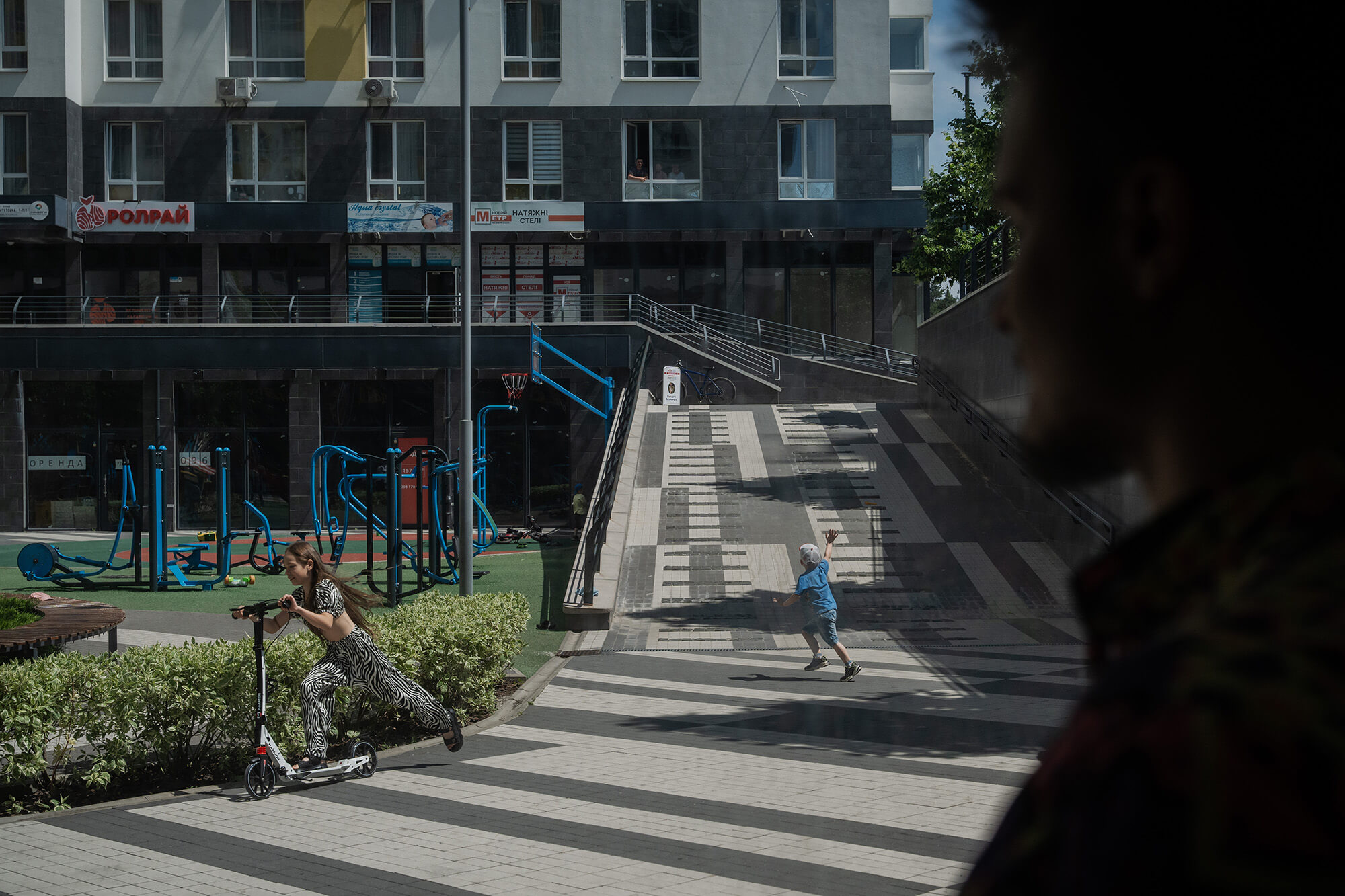
“I remember very well that I yearned for revenge. At the same time, I realized that as long as I had a weapon in my hands—my gun—I could do it where I was. I wanted so badly to throw it all away and run back home,” he says. “But it was a silly plan without my weapon and my fellow soldiers. I knew that while I was fighting in Luhansk Oblast, someone else was fighting in Kyiv Oblast.”
Someone had to protect his family the same way he was doing there.
Of course, he had long been telling his mom he was not on the zero line. The truth first came out when he was video calling her. At that point, his squad was fighting in the Serebriansky forest—the Russians were not further than 80 meters away. While his mother was looking at him through the screen, the assault began. Heorhii meant to disconnect the call, but he forgot. And after the battle, he realized that his mom had heard it all.
Over the abyss
Heorhii came to his senses in the hospital in the middle of a warm May night in 2023. One of his arms was tied to the bed, and he could not move the other one, though he could feel it. When he opened his eyes, there were two nurses standing by his bed. Through the haze in his head, Heorhii could hear them speaking Russian: “Oh, are you awake? Tell me the number of your military unit.” He could not think of any other possibility than being in Russian captivity.
In the morning, a woman entered his ward. It was his mom. She sat at his side and told him he was now in Kyiv.
For him, the day he was wounded is a reconstruction from the stories of his comrades. Fellow soldiers tell him he came back from the battlefield on his own. Heorhii does not remember a thing.
“I close my eyes—I am in Donetsk. When I open them—it’s Kyiv. And I am without my arm.”
In fact, a few weeks passed between the battlefield and Kyiv. At first, he was brought to the stabilization center in Donetsk Oblast, then to the hospital in Dnipro. The mine hit when Heorhii ran to the dugout in the heat of the battle to get new ammunition for his machine gun. He did not die, but he experienced a clinical death—just a few minutes away from the real one. When Heorhii was stabilized, the doctors gave him only 10% probability that he—being active and energetic, just like when he was sixteen and walked from Korosten to Irpin—would walk ever again.
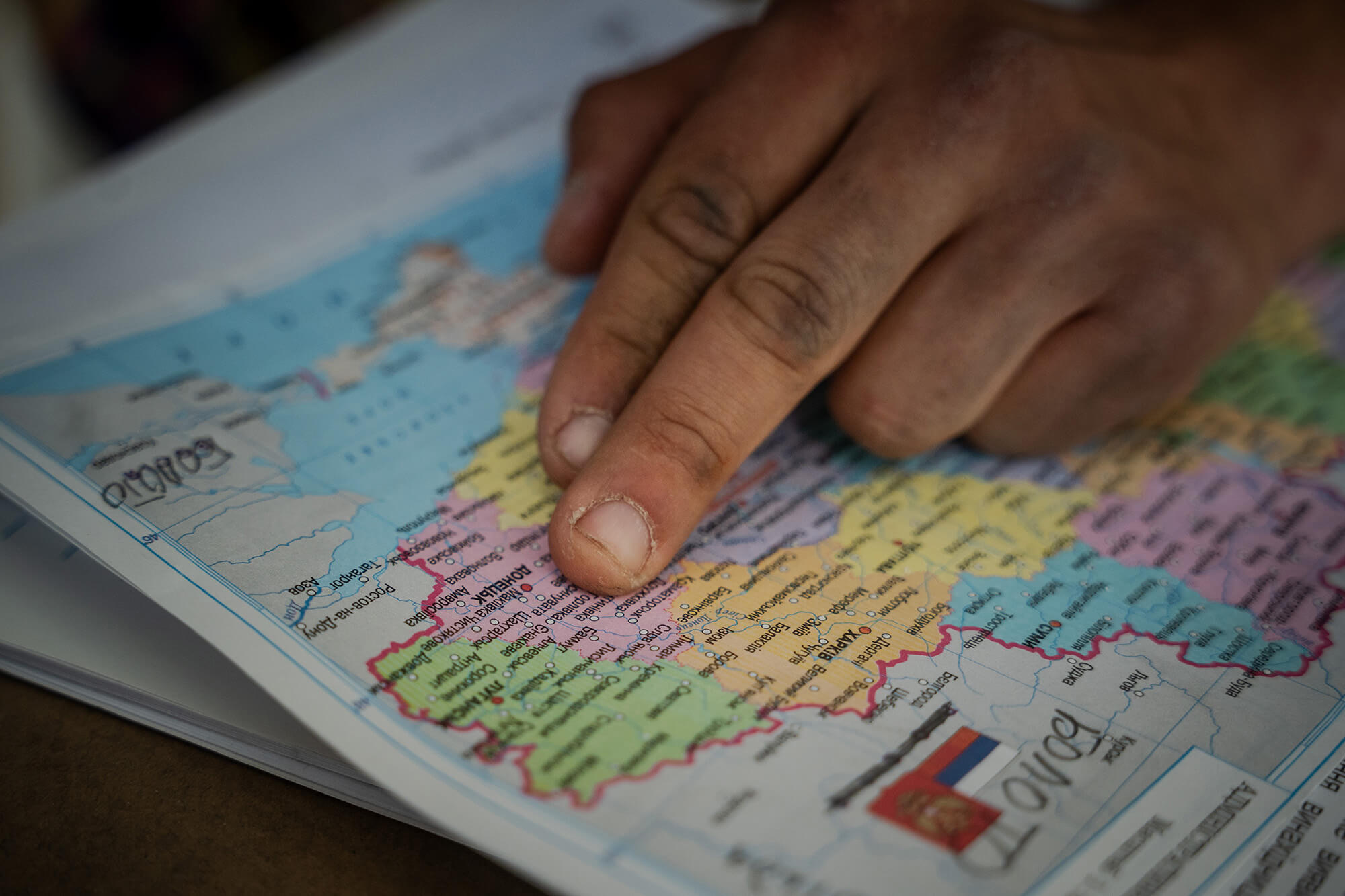
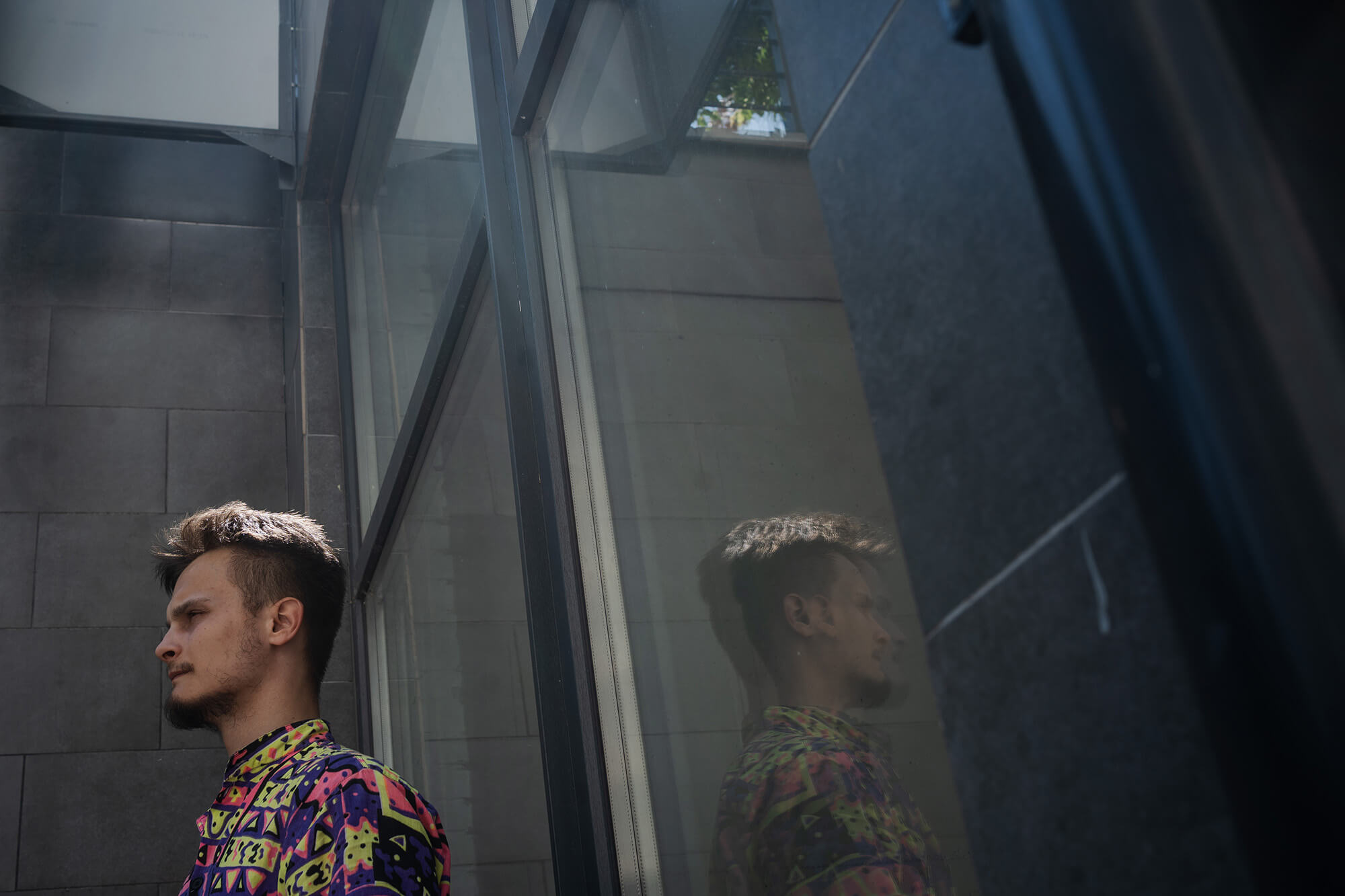
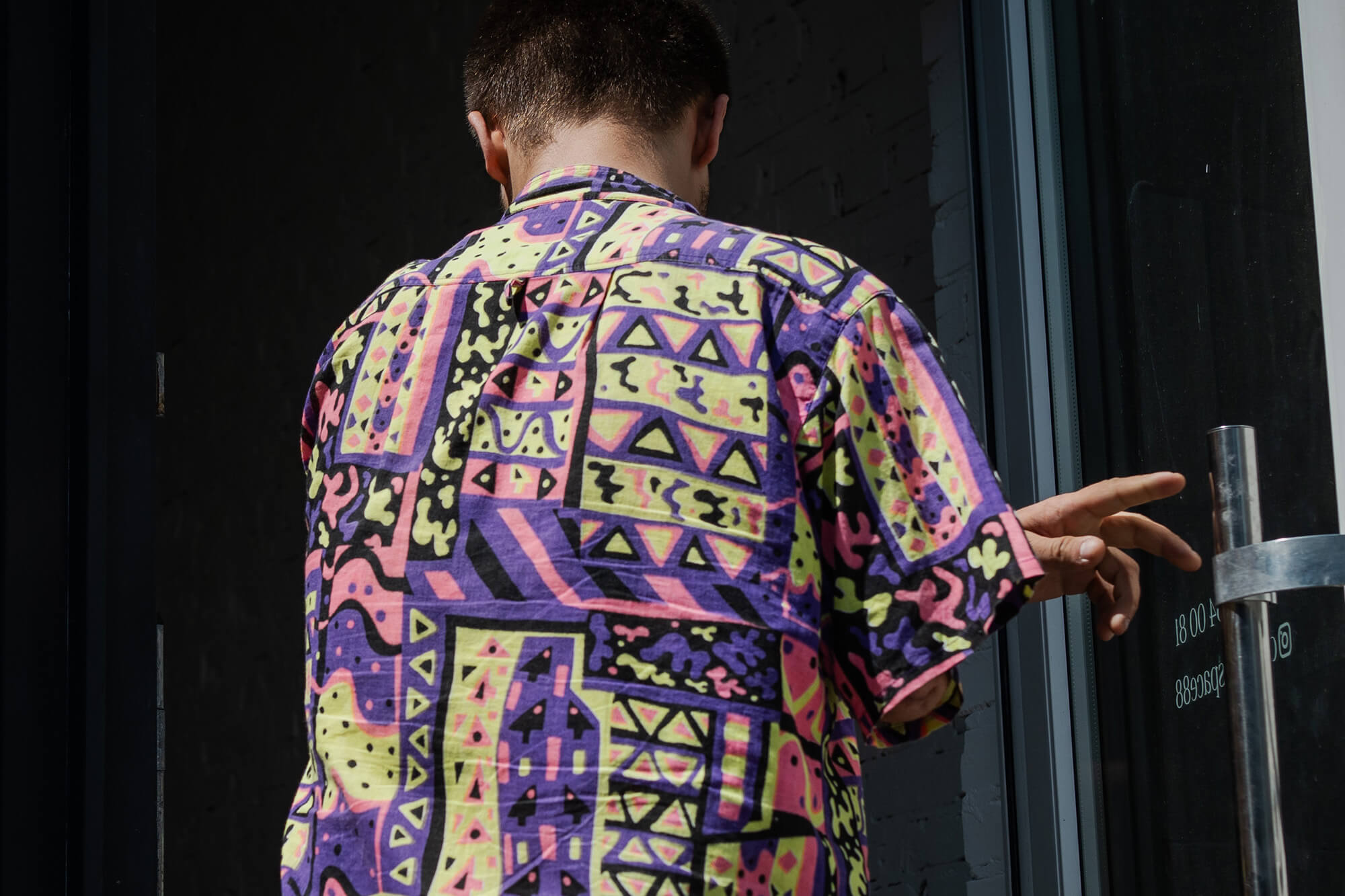
“You have been active for your whole life, and now only 20 seconds pass, and you lose your consciousness, your arm, and you will hardly ever walk again. It is vital somebody is at your side in such moments.”
At first, Heorhii tried to move his toes. He felt doomed. And even thought about death.
But his mom was holding him above this abyss. Heorhii considers her support to have been crucial. It was she who asked her younger children to draw pictures for their brother and made Heorhii move his head and look at them, describe everything he saw, and count the chickens and kittens they had drawn. It was she who planned, assisted, and pointed the way. And his younger siblings brought their children’s games to the hospital for their brother, seemingly for him to play with them, because they missed him and worried about his well-being. In fact, these games were lifesaving for Heorhii. They were for children, but lifesaving.
At the same time, Heorhii was inspired by the fellow soldiers next to him and by wounded comrades from the “Unbroken” rehabilitation center in Lviv, where he was being treated.
“When you come to the gym in the rehabilitation center and you see a guy there with both of his legs amputated above the knee, and his arm amputated up until his shoulder, you realize: you only miss half of your arm, can’t you do what he is doing? When you see a person who suffered more than you, you don’t have a moral right to surrender.”
Waltz of salvation
While Heorhii could hardly get up, his mom was already planning. Once again, just like in his childhood, she took him to dance classes, or rather, dancing. She made a deal with the instructors that they would practice so that Heorhii could work on his coordination. This way, his childhood hobby became his salvation.
First, they worked with his turns. Heorhii could step forward, but he couldn’t step back. He kept stepping despite his fear of falling. Slowly, his steps became more precise, and he was even proud of himself—he could do it.
In six weeks, Heorhii danced a slow waltz with his mom for the first time. Today, he practices approximately 40 minutes a day. It’s hard for him to dance longer yet.
Rehabilitation does not last for one day; Heorhii says the same about the book he is writing. He wishes to share his observations and impressions, to describe his life, the beginning of the war, his fellow soldiers, and how the fighting affected people. He had to quit massaging. His hands remember, but it is not so easy.
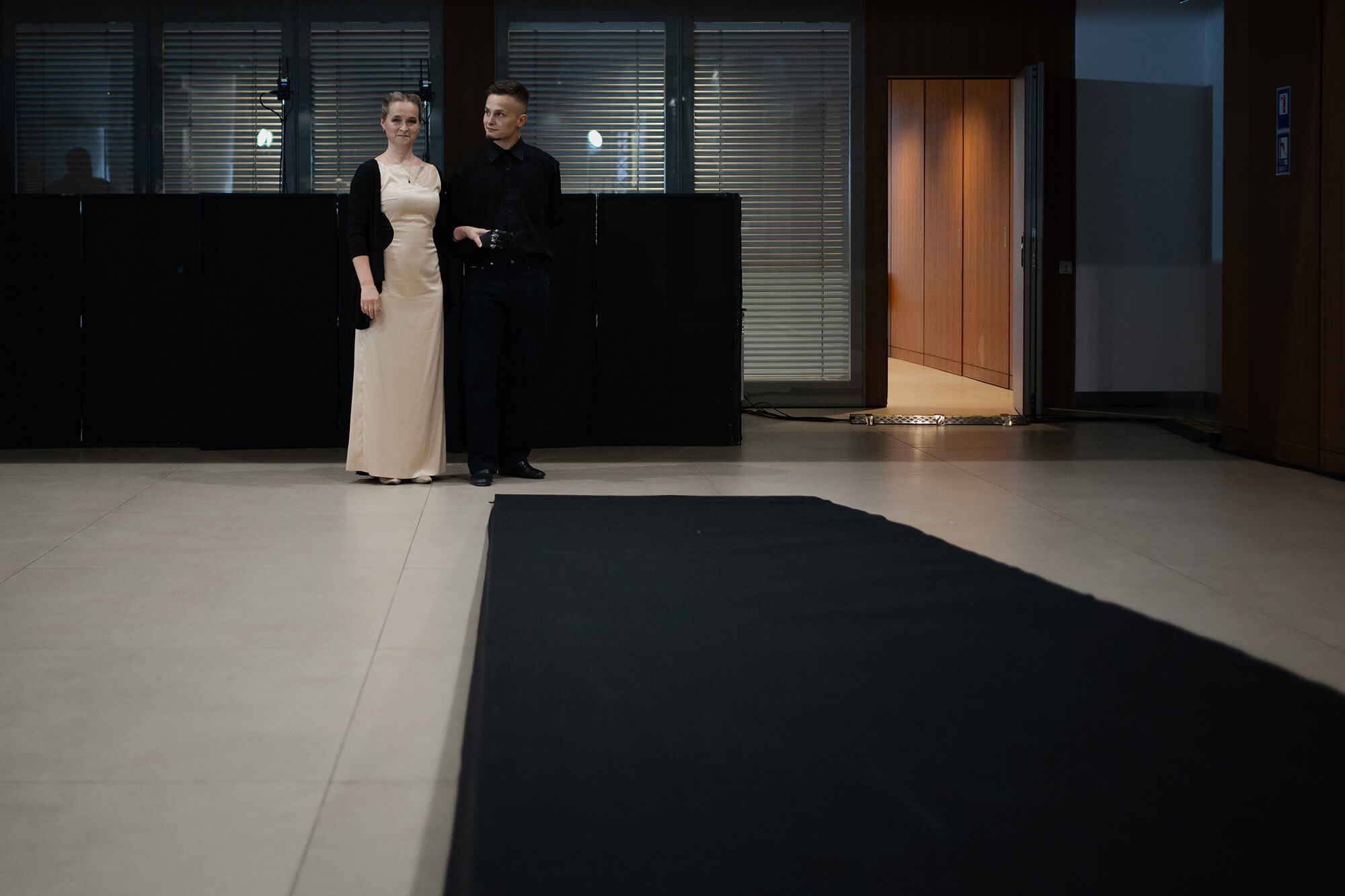
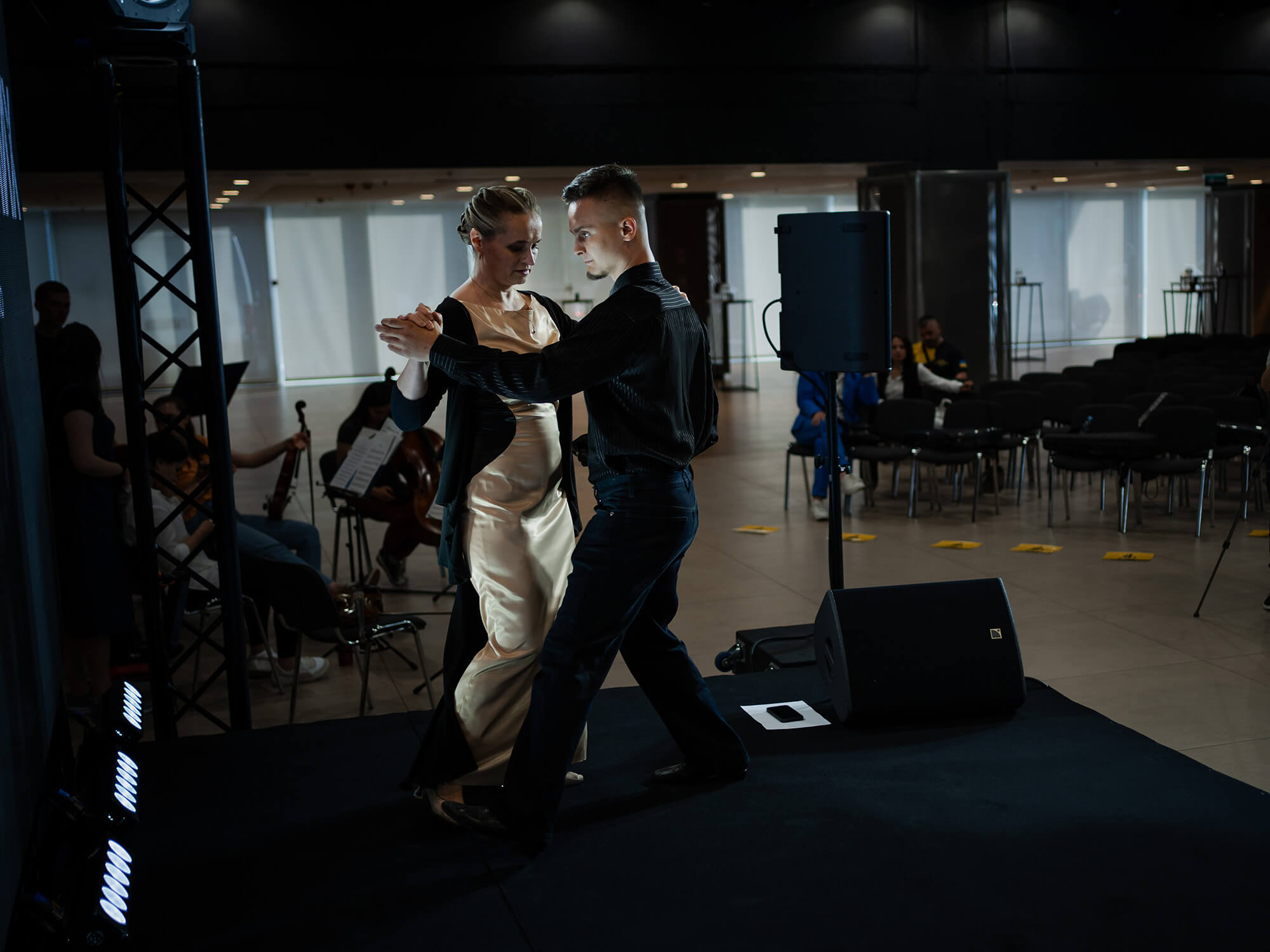
“I know what to do and how to do it, but I cannot put it to practice. I could use another hand,” he says, pun intended.
Heorhii does not plan to return to the army as he does not want to be a burden for his comrades.
“I had three strokes. If there is another strike next to us—the fourth one is sure,” says the veteran.
Still, Heorhii has not lost the enthusiasm that his mother instilled in him in his childhood. Today, he is forming his own veteran club in Irpin to help men and women returning from the war. These are just the first steps: he has found the room and is getting it ready. Heorhii is eager to help people who know what they want now, as well as those who are in search of themselves and need a hint.
“Before the war, every soldier had their own experience. When a person goes to fight in the war, it does not mean they turn into a war machine that can do nothing else but fight.”
Heorhii is sure people return home, their desires change, and new skills appear to accomplish what they really want.
He imagines there will be a children’s room in the mornings here; he doesn’t talk much about it yet. In the evenings, though, fellow soldiers will gather here to share news, stories and have a good laugh together.
The music slows down and comes to an end. All their fears—whether they will make it, as they have been only preparing for a couple of days, and whether the stage is too small for their dance—vanish. Mother and son stop in their waltz, and the audience breaks into applause.
“The Power to Continue” is a collaborative project between the United Nations Development Programme in Ukraine and Reporters. Our goal is to share unique stories of veterans and civilians who have lost limbs in Russia’s war against Ukraine, and not only found the strength to survive the trauma but also became drivers behind social projects and bold business ideas. We also highlight the stories of people who have helped them along the way. While there are not many of them, these people inspire and speak openly about their experiences, and this might become a starting point for others.
The special project was initiated by Reporters with the assistance of UNDP in Ukraine and financial support from the European Union as part of the “EU4Recovery—Empowering Communities in Ukraine” project. The opinions, recommendations, assessments, and conclusions expressed in these materials do not necessarily reflect the official position of UNDP, the EU, or their partners.
Have read to the end! What's next?
Next is a small request.
Building media in Ukraine is not an easy task. It requires special experience, knowledge and special resources. Literary reportage is also one of the most expensive genres of journalism. That's why we need your support.
We have no investors or "friendly politicians" - we’ve always been independent. The only dependence we would like to have is dependence on educated and caring readers. We invite you to support us on Patreon, so we could create more valuable things with your help.
Reports130
More



